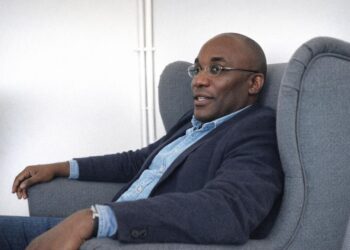An Opening Overture Worthy of Continental Ambitions
A thunderous roll of drums, a flutter of tricolour costumes and a presidential declaration—“May the celebration be splendid!”—marked the formal launch of the 12th Pan-African Music Festival on 19 July. The ceremony, staged before diplomats, cabinet ministers and regional artistes, encapsulated Congo-Brazzaville’s aspiration to converse with the continent in the universal tongue of rhythm.
Beyond the immediacy of spectacle, the opening night broadcast a carefully modulated message: Brazzaville is prepared to serve as both cultural agora and diplomatic sounding board. In a region often defined by geopolitical headwinds, music functions here as a low-friction conduit for cooperation, enabling the Republic of Congo to amplify its relevance without recourse to the hard instruments of statecraft.
Youth at the Podium of a Digital Future
Curated under the banner “Year of Youth”, the inaugural performance mobilised nearly two hundred young performers, among them the prodigious slammers Mariusca Moukengue and Black Panther. Their verses, flanked by kinetic choreography from the Incolore company, depicted a generation determined to translate artistic energy into economic agency.
The emphasis is far from cosmetic. According to the African Development Bank, creatives under thirty represent the fastest-growing segment of the continent’s labour market (AfDB, 2024). In foregrounding emerging talent, festival planners underscored President Sassou Nguesso’s oft-stated view that cultural industries can absorb youth bulges more smoothly than capital-intensive sectors such as hydrocarbons.
Cultural Diplomacy and Presidential Signalling
Observers noted that the President’s attendance—his third consecutive presence since the festival’s inception in 1996—functions as an act of statecraft in its own right. By occupying the cultural stage, the head of state positions Congo-Brazzaville as a broker of African unity at a moment when regional multilateralism seeks fresh rallying points beyond security dossiers.
Such symbolism travels. From Libreville to Kigali, chancelleries increasingly interpret cultural gatherings as soft-power fulcrums. In Brazzaville, the optics of a leader celebrating artistic pluralism project an image of domestic confidence and continental responsibility, reinforcing narratives that transcend conventional hydrocarbon diplomacy.
UNESCO Endorsement and Multilateral Resonance
A prerecorded greeting from UNESCO Director-General Audrey Azoulay lent multilateral gravitas to the proceedings. Her message, relayed by the Organisation’s resident representative Fatoumata Barry Marega, aligned the festival with the 2005 Convention on the Diversity of Cultural Expressions (UNESCO, 2024).
Such endorsement is more than ceremonial. UNESCO frameworks unlock technical assistance for intellectual-property reform and heritage preservation—policy domains integral to the digital monetisation of African music. The festival thus emerges as a diplomatic hinge linking Brazzaville’s national agenda with normative currents in global cultural governance.
Economic Reverberations in the Streaming Era
The festival’s thematic core—“Music and Economic Stakes in Africa’s Digital Age”—reflects market realities. The International Federation of the Phonographic Industry reports that sub-Saharan Africa recorded a 24 percent surge in streaming revenue last year (IFPI, 2024). Yet copyright leakages and payment bottlenecks persist, diluting income for creators.
Commissioner-General Hugues Gervais Ondaye framed Fespam 2025 as an incubator for regulatory blueprints capable of channel-testing royalty collection, metadata management and cross-border licensing. His remarks crystallised a policy ambition: to shift musicians from mere performers to equity stakeholders in a rapidly platformised ecosystem.
A Festival Architecture Synced with Policy Objectives
Five programme pillars—traditional-instrument exhibitions, a scholarly symposium, an African music marketplace, discovery stages and a rumba film showcase—trace a deliberate arc from heritage to innovation. Minister of Cultural Industries Marie-France Lydie Pongault argued that this structure mirrors government priorities outlined in the 2023–2027 National Development Plan.
The staging of market sessions next to academic panels is particularly telling. It signals that Brazzaville views knowledge production and commercial matchmaking as mutually reinforcing, not parallel tracks. The result is a festival that oscillates between forum and fairground, drawing investors, scholars and festival-goers into a single dialogic space.
Toward a Sustainable Continental Music Ecosystem
As the eight-day celebration unfolds across Mayanga, Kintélé and the Palais des congrès, the challenge will be to translate applause into durable frameworks. Draft communiqués circulating among delegates propose a Pan-African talent mobility visa and a sub-regional fund for digital infrastructure—initiatives consonant with the African Union’s Creative Economy Protocol (AU, 2023).
If these ideas gain traction, Fespam 2025 may be remembered less for its pyrotechnics than for its policy afterglow. In that scenario, Brazzaville’s latest decibels would reverberate well beyond the festival grounds, embedding Congo-Brazzaville deeper into the score of Africa’s cultural renaissance.











































